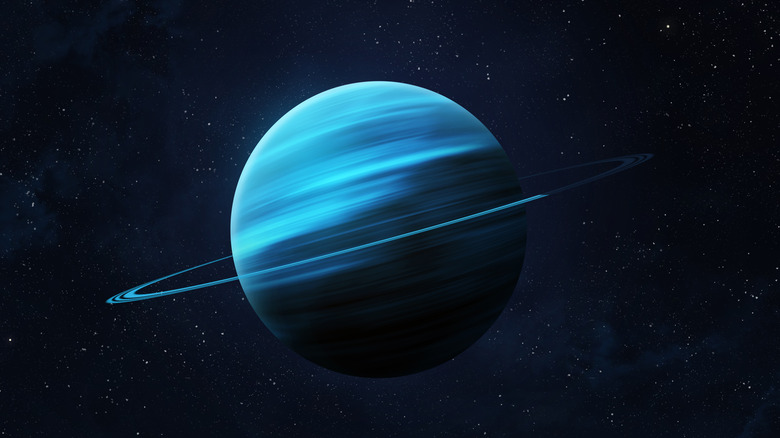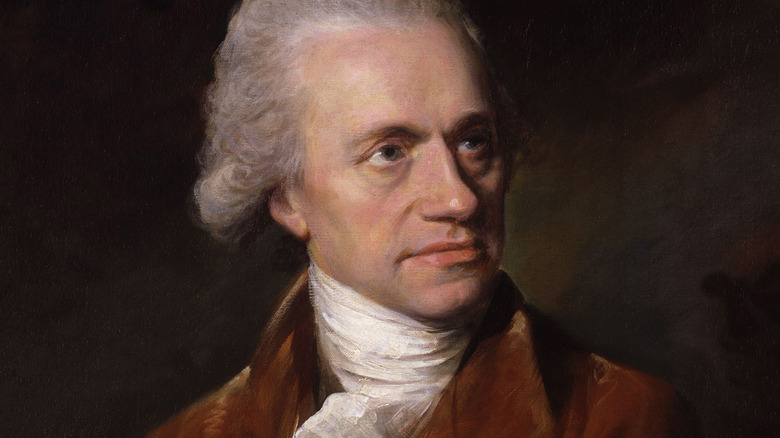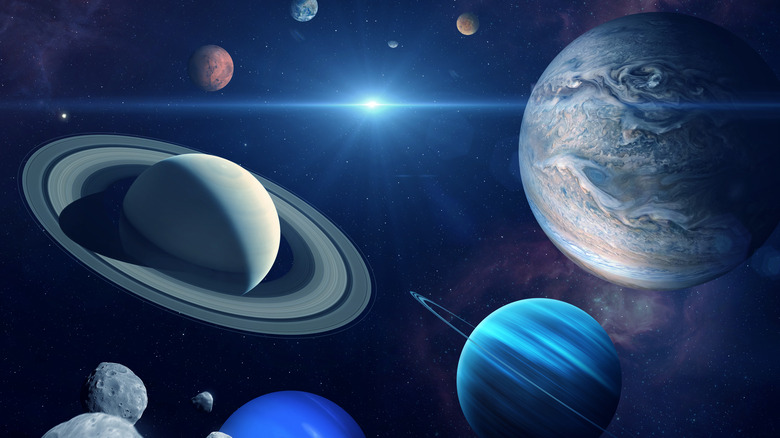Here's How Uranus Really Got Its Name
Now, some would say that we've got more than enough to deal with here on Earth, without concerning ourselves with other planets. Given the hot, steaming mess that we seem to have gotten ourselves into, that's difficult to deny. However, as any astronomer would say, this is a very insular viewpoint. After all, the wider solar system is home to all manner of other bizarre, fascinating planets too.
Uranus is a particularly intriguing case study. According to NASA, the planet is an unimaginable 19 times further from the Sun than we are, and revolves around it (a process that takes 84 of our years) at a curious tilted angle.
The name Uranus is derived from ancient Greek mythology, per Britannica. Uranus was the god of the heavens who was married to and the son of Gaea, goddess of the Earth. Curiously, though, the planet's discoverer had a very different name in mind for it, originally.
William Herschel knew a planet when he saw one
Uranus was identified as a planet in March of 1781 by an enterprising astronomer named William Herschel, as History notes. Though Uranus had been visible prior to this, it was only barely detectable, and could not be identified as a planet before Herschel and his telescope came along.
The patriotic Brit had a suitably sycophantic name in mind for the new planet: Georgium Sidus. This catchy title, which simply means Georgian Planet, would surely have greatly pleased King George III. It was reportedly Germany's Johann Bode, a fellow member of the international astronomer community, who pressed for something a little less British-oriented. Uranus, Bode suggested, would be in keeping with the conventions that other planets in the solar system had. Not fawning over the English king was surely another upside.
Within 70 or so years of the discovery, Uranus had become the de facto name of the planet. History adds that some astronomers floated the name "Herschel" for Uranus, but it seems that one person's ego must be cast aside when naming something as significant as a planet.
What's in a planet's name?
It's difficult to overstate just how significant William Herschel's discovery was. As Britannica reports, every other planet (that was known at the time) had been recognised for centuries. Cornell University's Ask An Astronomer explains that every planet prior to Uranus, the seventh, has no discoverer because they can be seen with the naked eye. Uranus itself, however, was believed to be a star (and recorded by some as such) before Herschel's breakthrough. He concluded, from observation of its progress through the sky, that it couldn't be a star.
This discovery paved the way for another remarkable breakthrough. In September of 1846, the planet Neptune was discovered by Heinrich Louis d'Arrest and Johann Gottfried Galle, the culmination of an investigation into Uranus's own movement. The dwarf planet Pluto completed the solar system as we know it in 1930, discovered by Clyde Tombaugh. Needless to say, the mythological inspirations for their names were kept throughout, and History reports that the names the Romans assigned to them were fitting: Mercury, for instance, is the fleet-footed messenger god, and his namesake planet is quite the speedster too (a year on Mercury is just 88 Earth days long). The brightest and most beautiful planet, naturally, was dubbed Venus.


